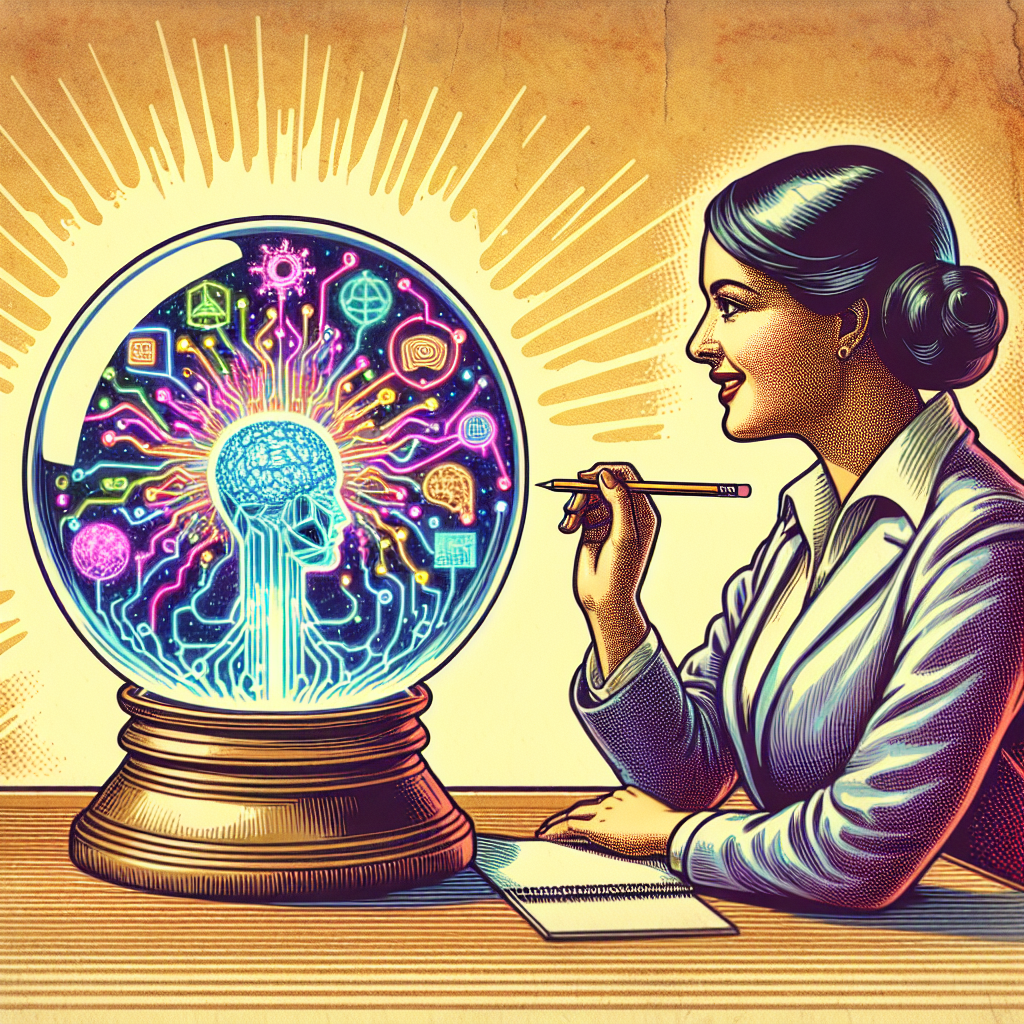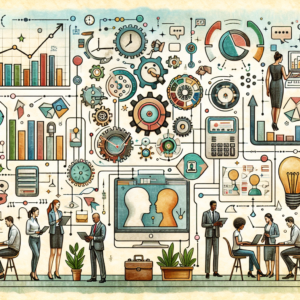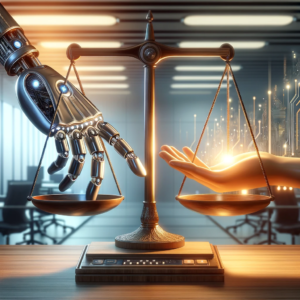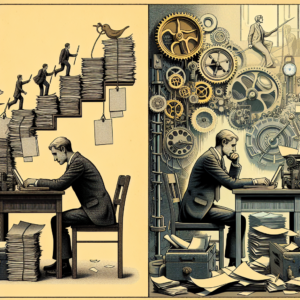The Dawning of a New Era in Business Strategy
Imagine a world where business decisions happen in the blink of an eye, powered by the silent, steadfast intellect of artificial intelligence (AI).
Welcome to the new era of business strategy, where AI and machine learning are not just buzzwords but the engines driving companies forward.
Gone are the days when AI was a distant dream, perched on the edge of business consciousness. Today, it stands at the core, reshaping the landscape of corporate decision-making.
From analyzing vast datasets to predicting market trends, AI transforms every facet of business strategy, making it more dynamic, insightful, and result-oriented.
This journey from the margins to the mainstream marks a revolution in how businesses operate, compete, and succeed in an ever-evolving marketplace.
The Evolution of AI: From Concept to Core Business Driver
Originating as a theoretical concept in the mid-20th century, AI has come a long way. It was only in the past decade, however, that AI truly began to drive business strategies.
From early attempts at automation to the sophisticated predictive capabilities of modern machine learning algorithms, AI has transformed.
It’s no longer a bolt-on extra; it’s now becoming the backbone of many successful businesses.
Several companies have already leveraged AI to catalyze monumental shifts in their operational paradigm.
Companies such as Amazon and Netflix rely heavily on machine learning algorithms to predict user behavior and deliver personalized experiences.
Unboxing AI’s Current Role in Business Development
Today’s AI applications in business strategy and development are vast and varied.
From automating mundane tasks to generating insights from data analysis, AI is helping businesses grow and adapt in new ways.
For companies like Boeing, AI is an essential tool for identifying inefficiencies and predicting maintenance needs.
This proactive approach to maintenance has drastically cut costs and downtime, leading to a healthier bottom line.
The Mechanics of AI-Powered Business Insights
AI not only streamlines business operations, but it also provides unparalleled access to valuable insights from a plethora of data.
Decoding the Data Trove: Predictive Analytics and Business Intelligence
Predictive analytics have become a central tool in every data-driven decision-making process.
AI algorithms can sift through vast quantities of data to predict future trends and behaviors while identifying potential opportunities and risks.
Coca-Cola, for example, relies heavily on its successful implementation of a data-driven approach.
Powered by AI and machine learning, the company identifies and anticipates varying consumer preferences globally, thereby driving their product development and marketing strategies.
Automating Opportunity: Machine Learning in Market Analysis
In the age of big data, machine learning is helping companies not just keep up, but take charge.
These algorithms can identify patterns that humans might miss, pointing them towards untapped market opportunities.
AI-powered market analysis has enabled businesses such as Spotify to identify listening patterns and curate personalized playlists, resulting in user retention and growth.
The future of AI in sales and marketing looks promising as machine learning continues to refine its predictive capabilities.
It’s an exciting time for AI in business development as we continue to discover new, transformative applications of this technology.
The future? It’s already here. And AI is leading the charge.
Peeking into the crystal ball, it’s clear that AI and machine learning will continue to shape the future of business development – from strategy making to customer service and beyond.
It’s an age of accelerated AI-driven business growth, and businesses need to keep up or risk being left behind.
Disrupting Traditional Business Models with AI
AI is no longer just a buzzword; it’s at the forefront of some dramatic changes in traditional business models.
The world is getting more connected, and businesses are using AI to analyze consumer behaviour in ways that were never before possible.
The Transformation of Customer Experience through AI
One area where AI is making significant inroads is the customer experience.
AI, especially when combined with machine learning, has the power to deliver a truly personalized customer experience.
Each interaction can be tailored to the individual consumer’s preferences and behavior, such as with the recommendations offered by streaming services like Netflix.
Looking ahead, we can expect AI to continue revolutionizing customer interactions.
From intelligent virtual agents capable of real-time, human-like conversations to learning a customer’s preferences and offering customized product suggestions, the world of customer service is set to change dramatically.
Efficiency on Steroids: Streamlining Operations with Machine Learning
AI is also proving beneficial in increasing operational efficiency. Machine learning algorithms are being used to identify bottlenecks, cut costs, and streamline operations in various industries, from manufacturing to healthcare.
An example of this is its use in optimizing supply chains and logistics. Global companies are using machine learning to predict potential delays and dynamically update routes, thereby saving costs and improving service.
The Talent Equation: AI’s Impact on the Workforce
A crucial aspect to consider when discussing AI’s impact is its role in shaping the future workforce. Does it pose a threat, or could it enhance human roles?
That’s the skyrocketing question.
Collaboration or Replacement? AI and Human Workers
While it’s true that AI has the potential to replace certain manual and repetitive tasks, it can also collaborate with human workers to boost efficiency and productivity.
Take the healthcare industry. AI can diagnose diseases and predict patient outcomes with high accuracy. However, it doesn’t remove the need for doctors or nurses.
Rather, it empowers them with information to make more informed decisions.
The key to successful AI implementation lies in finding a balance between automation and human interaction, creating a model where AI complements human roles rather than replacing them.
Rethinking Skills: The Future of Employment in an AI-Dominant Landscape
With AI playing an increasingly prominent role, newer skill sets are required.
Businesses are acutely aware that a workforce fluent in AI technology will be a critical resource.
Many are actively investing in training programs to build a workforce capable of developing, integrating, and maintaining AI systems.
By reskilling the existing workforce, businesses are laying the groundwork for a harmonious integration of AI and human talent.
The future of AI in business development is abundantly clear. AI and machine learning are not just shaping future business strategies, they are also reinventing the current business landscape.
They are enhancing customer experience, streamlining operations, and redefining the skills needed in the business world.
In the words of businessman Andrew Ng, “AI is the new electricity“. It has the potential to revolutionize business in the same way electricity did over 100 years ago.
Businesses that don’t adapt may find themselves struggling to keep up. To stay competitive, AI in business isn’t just an option; it is becoming a necessity.
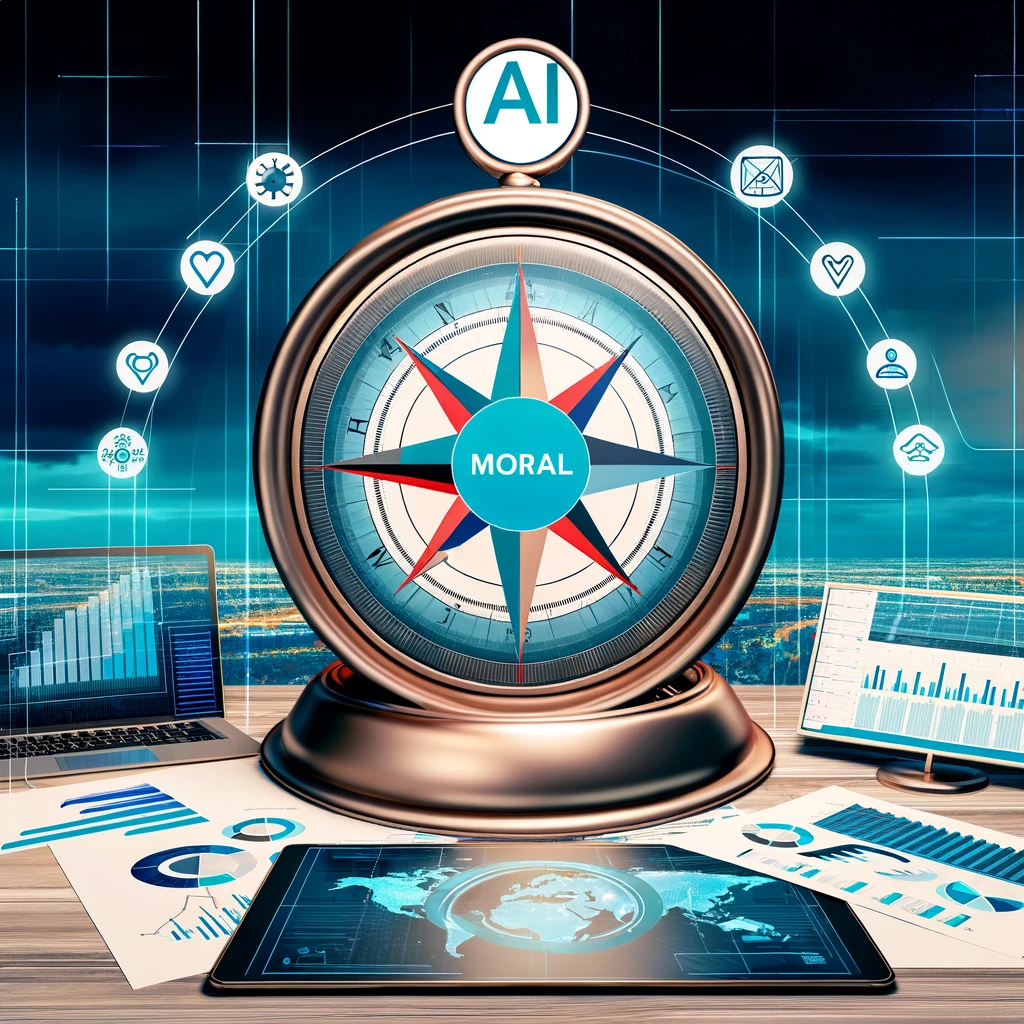
The Moral Compass of AI in Business: Navigating Ethical Boundaries
As we usher in the AI-dominant era and enjoy the conveniences it brings, the onus is on us to tread thoughtfully and ethically.
Navigating the moral compass of AI in business requires a delicate balancing act.
Bias and Fairness: Ensuring Ethical AI Algorithms
Eliminating bias and promoting fairness in AI algorithms is crucial in all sectors.
As the preference for data-driven decisions grows, we must ensure that AI algorithms uphold the principle of equality.
Bias in AI can have far-reaching effects. For example, if a biased AI is used for talent acquisition, it could result in a skewed workforce.
Implementing checks and constant reviews in the AI system can ensure that biases are identified and rectified.
Companies worldwide are making efforts to align AI technology with ethical standards.
IBM, for example, is proactively investing in research to combat bias in AI and make AI systems more transparent and fair.
Keeping Data in Check: Privacy Concerns with AI Analytics
Alongside equity, privacy is another key ethical concern in the AI-led business era.
With AI algorithms gleaming insights from vast data volumes, consumer privacy must be safeguarded vigilantly.
Balancing the merits of AI-based data analysis with consumer privacy rights is a tightrope act.
It’s about ensuring businesses have the data they need to provide personalized services while respecting consumer privacy.
Regulations like GDPR are stepping stones towards stronger data privacy in the AI landscape.
A future-proof AI strategy must prioritize maintaining ethical boundaries when handling consumer data.

Casting the Future: AI’s Pivotal Role in Long-Term Business Viability
With ethical concerns addressed, businesses can now lean into the boundless potential that AI brings and eagerly cast visions for a future shaped by AI.
Embracing Change: Companies Leading in AI Innovation
Swaths of businesses already identify as AI-first, meaning they prioritize AI in their business strategies. Google, for instance, has moved from a mobile-first to an AI-first approach, weaving AI into all facets of its strategy.
From tech giants to startups, companies are setting the pace for AI innovation.
As a result, AI has become a critical evaluation metric for business viability and a prominent differentiator in market segments.
The industries trailblazing the use of AI in business development — from healthcare to retail to finance — are broad and varied.
We can anticipate an even wider adoption of AI as more sectors recognize its transformative potential.
The Next Frontier: Predictive Forecasts for AI and Business Synergy
The horizon of AI and business synergy looks promising.
As AI technology advances, new applications and opportunities will arise, giving businesses the chance to expand, innovate, and redefine their strategic landscapes.
For example, AI-powered virtual reality could revolutionize e-commerce shopping. Or, AI robots could further automate manufacturing processes.
These scenarios show how businesses need to embrace AI to stay competitive.
In closing, exploring the role of AI in business development is like peeking into a crystal ball. Driven by artificial intelligence and machine learning, businesses get a glimpse into a future full of possibilities.
To seize these opportunities, businesses need to embrace AI in their strategies while ensuring ethical practices in using AI.
Every era has its transformative technology, and in ours, it’s artificial intelligence.
Businesses peppering their growth with AI in responsible ways are the ones that will continue to thrive in the dynamic, AI-centric business landscape of the future.
Let’s explore this new business landscape together.
Check out some of the automations we are building at Business Up Hub and let’s see how AI could help your business grow!

